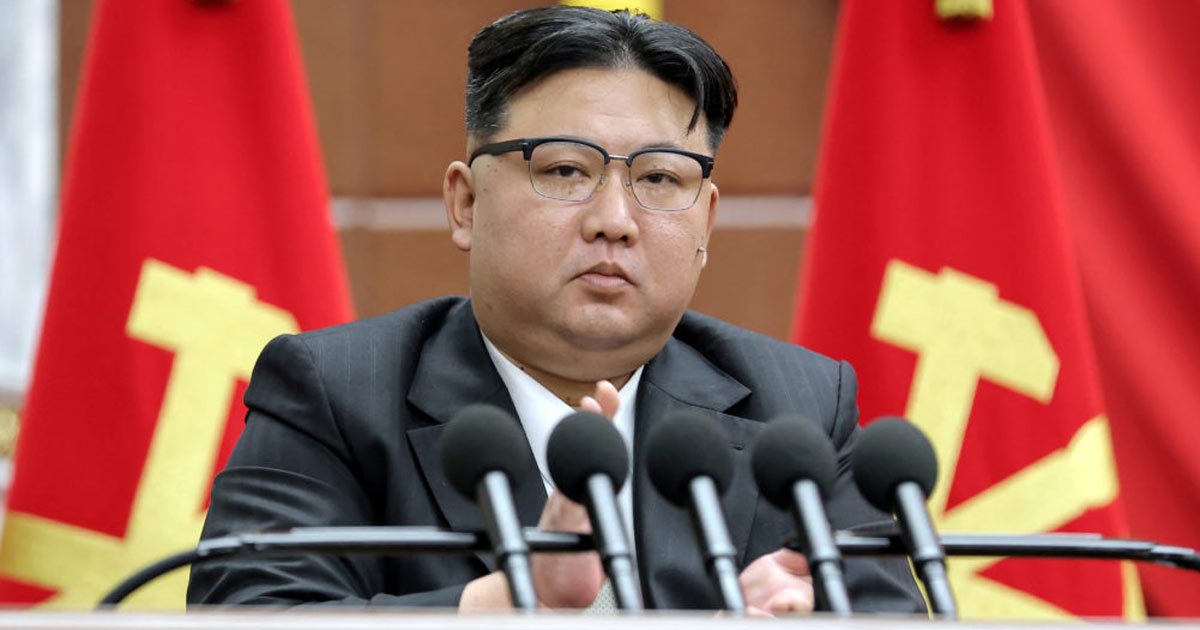North Korean dictator Kim Jong Un has ordered a rapid expansion of his regime’s nuclear arsenal, denouncing joint U.S.–South Korea military exercises as a provocation.
The annual drills, known as Ulchi Freedom Shield, began this week and are expected to continue through September.
North Korean state media quoted Kim as calling the exercises an “obvious expression of their will to provoke war” and warning that Washington and Seoul intend to “remain most hostile and confrontational.”
Kim said the only response was to “rapidly expand” North Korea’s nuclear weapons program, underscoring his regime’s refusal to engage in any denuclearization talks.
“Through this move, North Korea is demonstrating its refusal to accept denuclearization and the will to irreversibly upgrade nuclear weapons,” Hong Min, a North Korea analyst at the Korea Institute for National Unification, told Reuters.
The renewed tensions come just days after South Korean President Lee Jae Myung announced steps to de-escalate along the peninsula’s heavily fortified border.
Lee said his government would seek to restore the 2018 September 19 Military Agreement, a deal signed at an inter-Korean summit that had created buffer zones, no-fly areas, and reduced guard posts near the Demilitarized Zone.
That agreement eventually collapsed as relations soured, but Lee has pledged “gradual steps to restore” the deal.
“I hope that North Korea will reciprocate our efforts to restore trust and revive dialogue,” he said.
At the time, South Korea also dismantled loudspeakers used for years to broadcast anti-Pyongyang messaging, with North Korea taking similar steps in return.
Kim’s threats highlight the stark contrast between North Korea’s posture under President Donald Trump and its growing belligerence during Joe Biden’s administration.
During Trump’s first presidency, Kim met face-to-face with the U.S. leader in a series of unprecedented summits.
While denuclearization was never fully achieved, the meetings opened direct lines of communication and, for the first time in decades, froze major missile testing.
Trump often reminded critics that “no nuclear tests” occurred during his tenure, crediting his unorthodox diplomacy with preventing escalation.
By contrast, under Biden, North Korea returned to aggressive missile testing and ramped up threats almost immediately.
The Biden administration largely ignored Trump’s direct engagement model and reverted to the pre-2016 approach of joint drills, sanctions, and limited back-channel talks.
This strategy has historically hardened Pyongyang’s position rather than softening it.
Critics argue Biden’s policy has been both provocative and ineffective, leading to the current standoff.
Kim has used the drills to justify advancing his nuclear arsenal while refusing to return to the negotiating table, signaling that Pyongyang views Biden as easier to defy than Trump.
Kim’s rhetoric makes clear that North Korea intends to exploit the annual exercises as proof of U.S. hostility, strengthening its case domestically for accelerating nuclear production.
That stance raises the risk of further missile launches, weapons tests, or even clashes along the heavily militarized border.
With Trump back in the White House, the dynamic could shift once again.
His administration has signaled it is open to resuming direct dialogue with Pyongyang while rejecting Biden’s reliance on what Trump called “old, failed playbooks.”
Whether Kim is willing to test Trump’s willingness to return to personal diplomacy, or instead push ahead with nuclear expansion, could define the next chapter of U.S.–North Korea relations.

Our comment section is restricted to members of the Slay News community only.
To join, create a free account HERE.
If you are already a member, log in HERE.